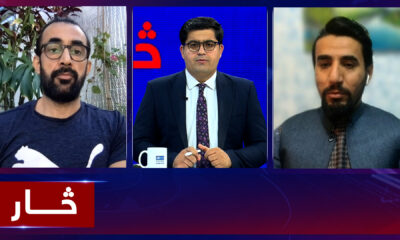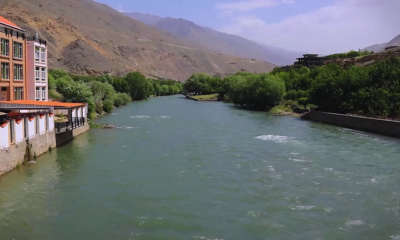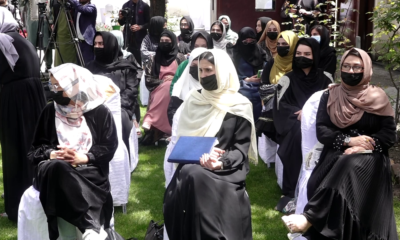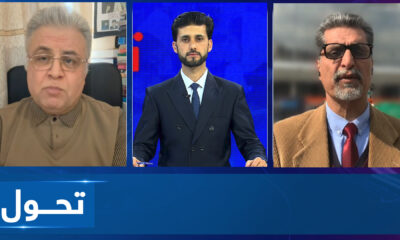Science & Technology
Twitter’s new CEO is an NBCUniversal executive with deep ad industry ties

Elon Musk confirmed that the new CEO for Twitter will be NBCUniversal’s Linda Yaccarino, an executive with deep ties to the advertising industry.
“I am excited to welcome Linda Yaccarino as the new CEO of Twitter!” Musk wrote in a Friday tweet. He added that Yaccarino “will focus primarily on business operations” while Musk will stay closely connected to product design and new technology.
Before that announcement, NBCUniversal said Friday that Yaccarino would step down immediately as chairwoman for global advertising and partnerships, AP reported.
Musk, who bought Twitter last fall and has been running it since, has long insisted that he would step down as top executive at the company, which is now called X Corp.
Few expect Musk to remove himself from the decision-making process at Twitter, however.
“While he’s stepping back from the CEO title, Musk is far from likely to step back from calling the product shots,” said Mike Proulx, research director at Forrester Research.
Yaccarino, with deep roots in the advertising industry, could be a linchpin in Twitter’s future.
Luring advertisers is critical for Musk and Twitter after many fled in the early months after his takeover of the social media platform, fearing harm to their brands in the ensuing chaos. Musk said in late April that advertisers had returned, but provided no details.
Mark DiMassimo, founder and creative chief of ad agency DiGo, said Yaccarino successfully integrated and digitized ad sales at Comcast and NBC — and that her track record of cross-selling ads across different platforms could appeal to Musk as he tries to transform Twitter from a social media company to a bigger media platform.
Yaccarino worked at NBCUniversal for nearly 12 years — with her team generating more than $100 billion in ad sales since 2011, her company bio notes.
According to LinkedIn, Yaccarino previously served as NBC’s chair for advertising and client partnerships and as president of cable entertainment and digital advertising sales. Prior to her time with NBC, Yaccarino worked at global entertainment company Turner for almost two decades.
Last month, Yaccarino interviewed Musk on a Miami stage last month in front of hundreds of advertisers.
“If anyone can translate the Musk vision into advantages for marketers she’ll be able to do it,” DiMassimo said Friday, prior to Musk’s confirmation. “Even though there’s skepticism and all marketers live in the ‘show me’ state right now with regard to Twitter, if in fact she does go to Twitter this is a powerfully reassuring move.”
Musk said he never intended to be CEO of Tesla, and that he didn’t want to be chief executive of any other companies either, preferring to see himself as an engineer. Musk also said at the time that he expected an organizational restructuring of Twitter to be completed in the next week or so. It’s been nearly six months since he said that.
Bantering with Twitter followers late last year, Musk expressed pessimism about the prospects for a new CEO, saying that person “must like pain a lot” to run a company that “has been in the fast lane to bankruptcy.”
“No one wants the job who can actually keep Twitter alive. There is no successor,” Musk tweeted at the time.
Science & Technology
‘Massive cyberattack’ brings down Elon Musk’s X
Digital Trends reported Tuesday that there are reports suggesting X is still having issues
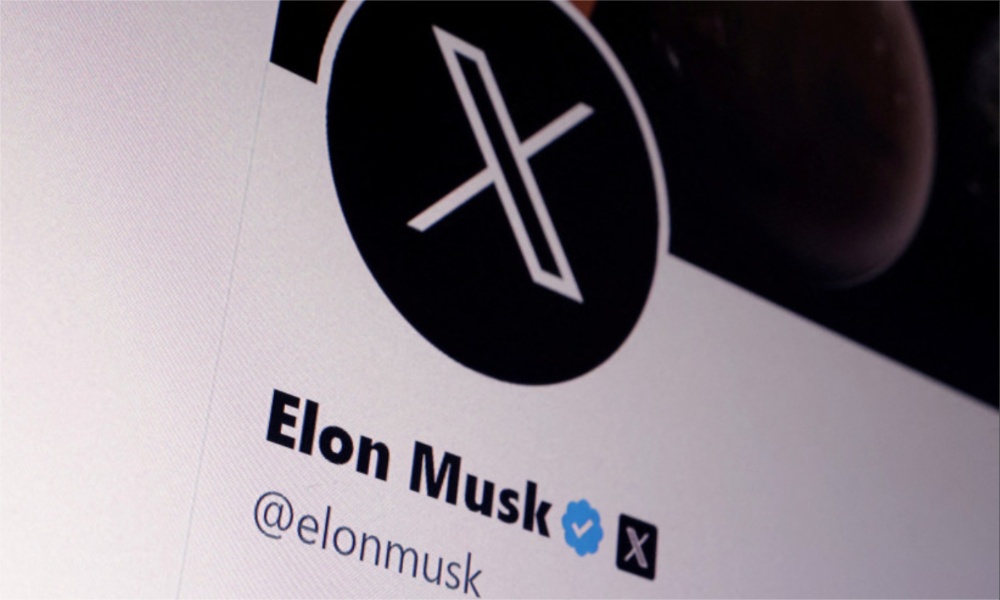
Social media platform X went down intermittently on Monday, with owner Elon Musk blaming an unusually powerful cyberattack.
“We get attacked every day, but this was done with a lot of resources. Either a large, coordinated group and/or a country is involved,” Musk said in a post on X on Monday.
He did not clarify exactly what he meant by “a lot of resources” and his comments drew skepticism from cybersecurity specialists, who pointed out that attacks of this nature — called denials of service — have repeatedly been executed by small groups or individuals.
X faced intermittent outages, according to Downdetector, Reuters reported.
Digital Trends meanwhile reported Tuesday that there are reports suggesting X is still having issues.
Internet industry experts have said X was hit by several waves of ‘denial of service’ throughout Monday.
Musk said in an interview with Fox Business Network’s Larry Kudlow the cyberattack came from IP addresses originating in the Ukraine area.
An industry source told Reuters he disputed Musk’s account, saying that large chunks of the rogue traffic bombarding X could be traced back to IP addresses in the United States, Vietnam, Brazil and other countries, and that the amount of rogue traffic coming directly from Ukraine was “insignificant.”
In any case, denial of service attacks are notoriously hard to trace back to their authors and the IP addresses involved rarely provide any meaningful insight into who was behind them, Reuters reported.
Musk has joined U.S. President Donald Trump, whom he serves as an adviser, in criticizing Ukraine’s continued efforts to fight off a Russian invasion.
Musk said on Sunday that Ukraine’s front line “would collapse” without his Starlink satellite communications service, though he said he would not cut off Ukraine’s access to it.
Science & Technology
NASA says ‘city killer’ asteroid has a 3.1 % chance of striking Earth in 2032
Despite the rising odds, experts say there is no need for alarm
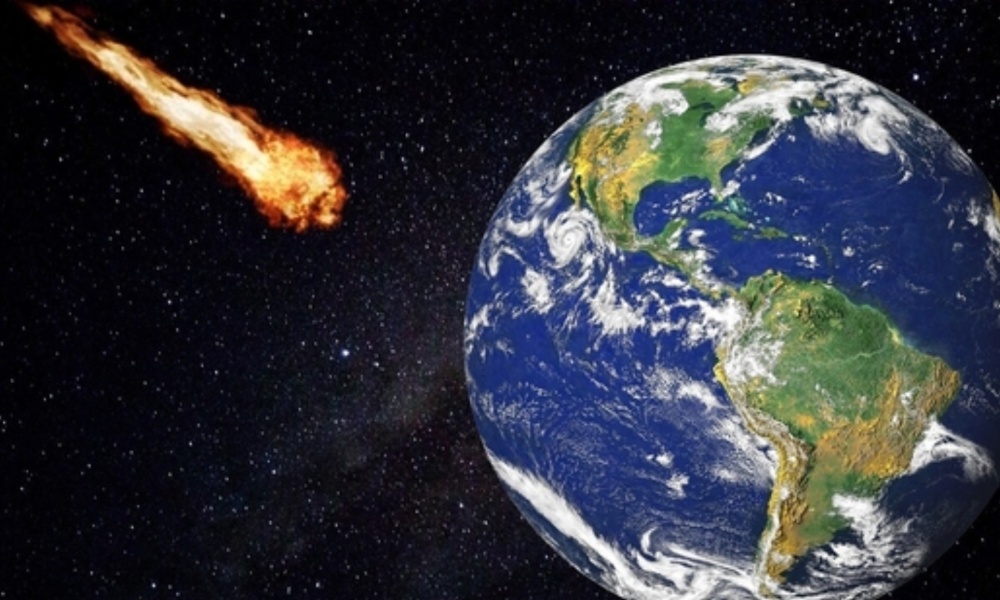
An asteroid that could level a city now has a 3.1-percent chance of striking Earth in 2032, according to NASA data released Tuesday — making it the most threatening space rock ever recorded by modern forecasting.
Despite the rising odds, experts say there is no need for alarm. The global astronomical community is closely monitoring the situation and the James Webb Space Telescope is set to fix its gaze on the object, known as 2024 YR4, next month.
“I’m not panicking,” Bruce Betts, chief scientist for the nonprofit Planetary Society told AFP.
“Naturally when you see the percentages go up, it doesn’t make you feel warm and fuzzy and good,” he added, but explained that as astronomers gather more data, the probability will likely edge up before rapidly dropping to zero.
2024 YR4 was first detected on December 27 last year by the El Sauce Observatory in Chile.
Astronomers estimate its size to be between 130 and 300 feet (40–90 meters) wide, based on its brightness. Analysis of its light signatures suggests it has a fairly typical composition, rather than being a rare metal-rich asteroid.
The International Asteroid Warning Network (IAWN), a worldwide planetary defense collaboration, issued a warning memo on January 29 after the impact probability had crossed one percent. Since then, the figure has fluctuated but continues to trend upward.
NASA’s latest calculations estimate the impact probability at 3.1 percent, up from 1.6 percent last month, with a potential Earth impact date of December 22, 2032.
Richard Moissl, head of the European Space Agency’s planetary defense office, which puts the risk slightly lower at 2.8 percent told AFP that this “is not a crisis at this point in time. This is not the dinosaur killer. This is not the planet killer. This is at most dangerous for a city.”
If the risk rises over 10 percent, IAWN would issue a formal warning, leading to a “recommendation for all UN members who have territories in potentially threatened areas to start terrestrial preparedness,” explained Moissl.
Unlike the six-mile-wide (10-kilometer-wide) asteroid that wiped out the dinosaurs 66 million years ago, 2024 YR4 is classified as a “city killer” — not a global catastrophe, but still capable of causing significant destruction.
Its potential devastation comes less from its size and more from its velocity, which could be nearly 40,000 miles per hour if it hits.
If it enters Earth’s atmosphere, the most likely scenario is an airburst, meaning it would explode midair with a force of approximately eight megatons of TNT — more than 500 times the power of the Hiroshima bomb.
But an impact crater cannot be ruled out if the size is closer to the higher end of estimates, said Betts.
The potential impact corridor spans the eastern Pacific, northern South America, the Atlantic, Africa, the Arabian Peninsula, and South Asia — though Moissl emphasized it is far too early for people to consider drastic decisions like relocation.
The good news: there’s ample time to act.
NASA’s 2022 DART mission proved that spacecraft can successfully alter an asteroid’s path, and scientists have theorized other methods, such as using lasers to create thrust by vaporizing part of the surface, pulling it off course with a spacecraft’s gravity, or even using nuclear explosions as a last resort. — Agence France-Presse
Science & Technology
Panjshir will soon be connected to national fiber optic network
The statement said that this project covers a 36-kilometer route from Gulbahar to Bazarak, and the districts of Shatal, Anaba and Rukha will also benefit from fiber optic services.
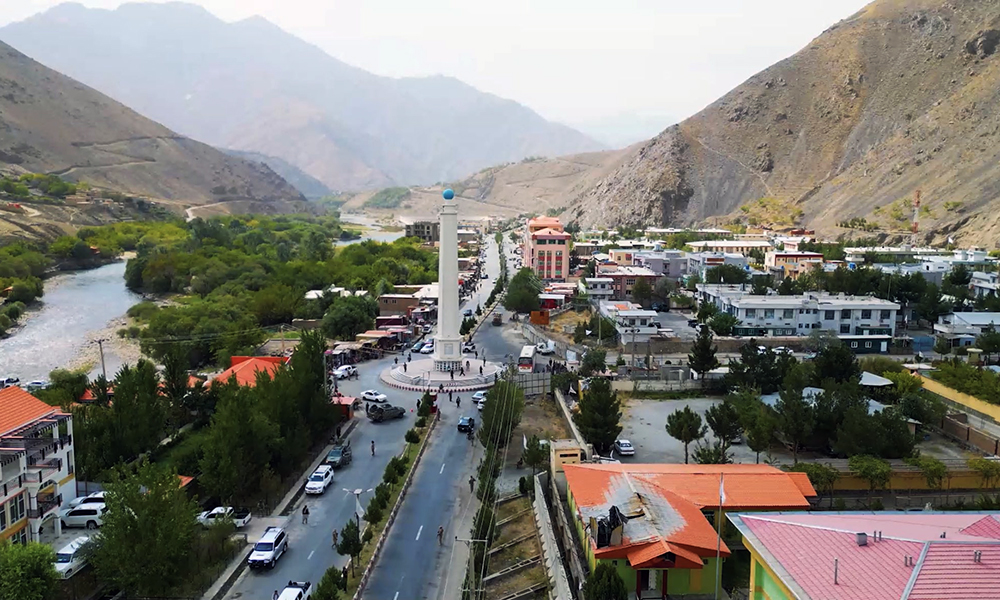
The Panjshir provincial media office said in a statement on Wednesday, February 1 that practical work was to connect the province to fiber optic will begin within the next month.
The statement said that this project covers a 36-kilometer route from Gulbahar to Bazarak, and the districts of Shatal, Anaba and Rukha will also benefit from fiber optic services.
The statement added that the project is being implemented by Afghan Wireless, Afghan Telecom and ICG companies as a result of the efforts of the Panjshir provincial administration and the special attention of the leadership of the Ministry of Communications and Information Technology of the Islamic Emirate of Afghanistan.
-

 World5 days ago
World5 days agoMyanmar quake death toll hits 1,700 as aid scramble intensifies
-

 Latest News4 days ago
Latest News4 days agoSwitzerland re-establishes presence in Kabul with humanitarian office
-
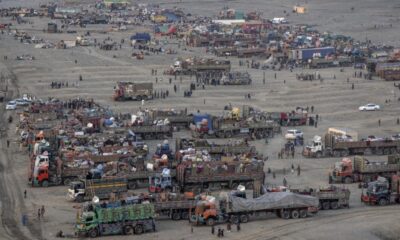
 Latest News4 days ago
Latest News4 days agoPakistan plans to expel 3 million Afghan refugees this year
-

 World4 days ago
World4 days agoSouth Korea, China, Japan seek regional trade amid Trump tariffs
-
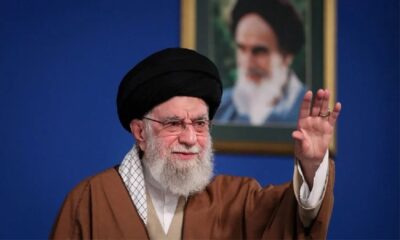
 Regional4 days ago
Regional4 days agoIran’s Khamenei warns of ‘strong’ response if US attacks
-

 Latest News3 days ago
Latest News3 days agoAfghanistan’s reconstruction is in the interest of EU: Uzbek president
-

 Latest News3 days ago
Latest News3 days agoUS won’t rest until all Americans detained in Afghanistan brought home: Rubio
-

 Latest News3 days ago
Latest News3 days agoBulgaria brings five people to trial over deaths of 18 Afghan migrants




